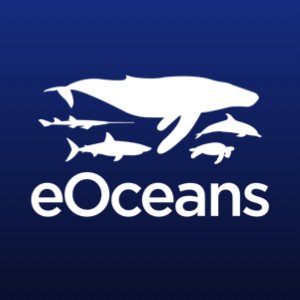The Essential Role of Biodiversity in Oceans, Coastlines, and Lakes
Biodiversity, the variety of life in all its forms, is the foundation on which the health of the Earth rests. Nowhere is this more evident than in our aquatic ecosystems. Oceans, rivers, lakes, and wetlands teem with life, each individual playing a critical role in maintaining the delicate balance necessary for the survival of countless species, including our own.
Aquatic ecosystems are remarkably diverse, home to millions of species that range from the tiniest plankton to the largest whales. Working together, this diversity ensures ecosystem resilience, enabling these environments to withstand and recover from natural and human-induced changes. For instance, coral reefs, often called the rainforests of the sea, support an estimated 25% of all marine life. They provide habitat, food, and breeding grounds for numerous species, underpinning the livelihoods of millions of people worldwide.
The benefits of aquatic biodiversity extend far beyond ecological stability. It contributes significantly to human well-being through ecosystem services such as food provision, climate regulation, and water purification. Fisheries, a crucial source of protein for over a billion people, rely on healthy, biodiverse aquatic systems. Wetlands and mangroves act as natural water filters and storm buffers, protecting coastal communities from the worst impacts of climate change and natural disasters.
A Big Challenge
Aquatic biodiversity is under unprecedented threat. Overfishing, habitat destruction, pollution, and carbon emission impacts, such as ocean acidification and warming, are driving many ecosystems and species toward extinction at an alarming rate. The loss of any species can have cascading effects throughout the ecosystem, disrupting food webs, altering habitat structures, and diminishing the resilience of these vital systems.
Coral reefs are, for example, undergoing significant loss as a direct result of excess nutrients in the ocean from human sewage discharges, agriculture, and long-term seawater warming. They need nutrient poor water (oligotrophic) and seasonable temperatures.
At the other end of the food web, Sharks are crucial to maintaining the health of marine ecosystems. They regulate the populations of species below them in the food chain, helping to maintain the balance necessary for diverse marine life to flourish. In areas where shark populations have long-since declined due to overfishing, there have been significant disruptions in marine ecosystems, leading to the overpopulation of certain species and the depletion of others, which can cause coral reef decline and affect commercial fish populations. Some of these declines, especially in coastal ecosystems, pre-date monitoring and therefore the true impact of their loss may not be known.
A Massive Opportunity for All
Given these challenges, the importance of monitoring, understanding, and developing prudent conservation and novel economic strategies that protect and restore aquatic biodiversity cannot be overstated — that is the essence of the Blue Economy.
To succeed, the Blue Economy requires comprehensive monitoring that provides the insights that communities, scientists, and decision makers need to understand the health of aquatic ecosystems, identify emerging threats, and develop strategies to mitigate them. Monitoring also allows for the assessment of policy and conservation efforts to ensure they are working in real-life, and not just working on paper.
As global citizens, we all have a role to play in monitoring and safeguarding aquatic biodiversity. By participating in monitoring programs — being the eyes on the water and logging observations — you can support smart practices by being active in the community, and advocating for strong protection and restoration policies, we can contribute to the preservation of these vital ecosystems.
Through many eOceans projects, eShark, eManta, The Shark Sanctuary Evaluation, and the ‘100 million sharks die each year’, we have already had significant influence.
The eOceans app and platform were built to empower and enable individuals and organizations across all interest groups and locations to unite and take part in this crucial work, providing the tools and data outputs communities need to make a tangible difference.
Join Us!
Join eOceans and log your observations in the eOceans mobile app to help drive understanding and conservation efforts. By contributing your sightings you can make a real difference. Together, we can enhance our knowledge and necessary protection of our ocean.










